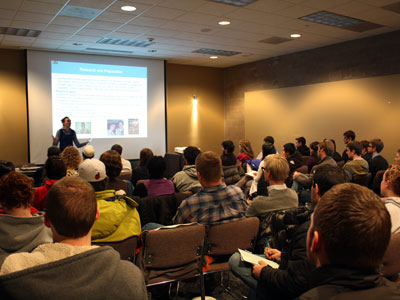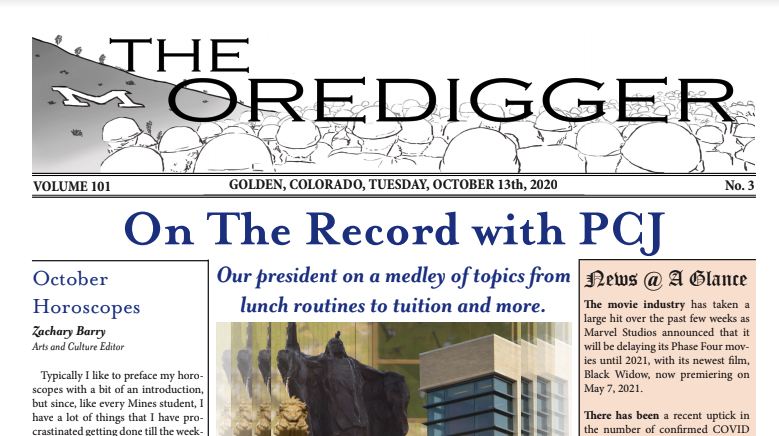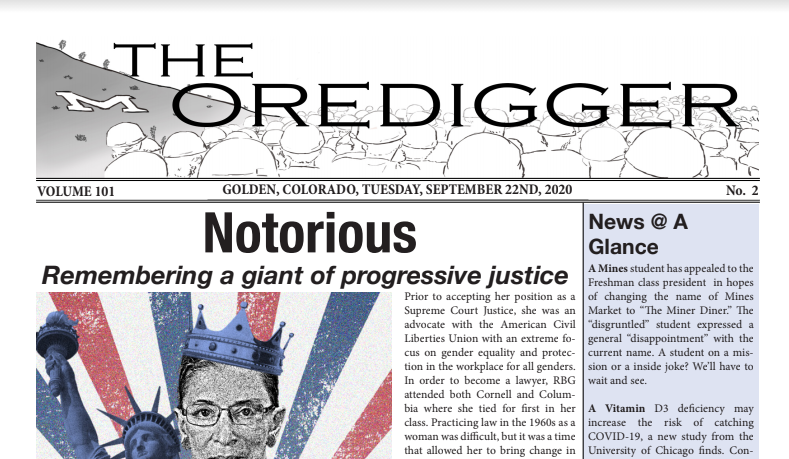“I practically stalked this job,” Allison Bruce of CH2M-Hill revealed to Mines students. “I made sure I was absolutely everywhere I could be that my company would be.” And through extensive research, planning, and hard work, Bruce found classic career success.
Bruce presented her generic method for conducting a productive job search. First, perform a self-assessment. What is your ideal work environment? What are your strengths, skills, and interests? Next, Bruce said get prepared to apply. This includes writing a resume and cover letter, practicing a 30-second speech, dressing professionally, and cleaning up voicemail machines, Facebook pages, and email. Bruce warned against “blanketing” a resume, or making it too generic for companies to understand your career objective. Students should then prepare for an interview by researching their top ten companies. Bruce recommended to “think about when you applied to college. You could not apply to every school in the United States… take the same approach with your job search.” Organize company contacts, events, projects, and websites for accessibility and reference later.
For CH2M-Hill, LinkedIn, a professional website used by recruiters, is the main source of communication between applicants and employers. “65% to 85% of jobs are found through networking, [so] it should be the focus of about 80% of your allotted search time,” stressed Bruce. She suggested creating profiles with multiple companies and submitting resumes early. Therefore, if a job offer pops up in the middle of finals week, “you can immediately apply to it.”
“That is always a ‘wow’ moment for me,” Bruce said about students who take initiative in their job search. Bruce explains that employers appreciate students who specify why they want a certain job and why they are the perfect ones for it. Firms have reported that this is a major distinction between landing a job position and not.
Informational interviews are one of the most beneficial components of a successful job search. They provide firsthand insight into both the company and the position that applicants may be interested in pursuing. Just like Bruce’s method for performing a job search, informational interviews have etiquette. Drop a line to a company employee asking, “Do you have 30 minutes to speak with me more about your career?” Dress nicely, bring a resume, and be prepared to take notes. Note that these meetings are intended to interview an employee and learn about their experiences in a less formal environment, not an opportunity to brag or beg for a job. At the end, request an additional contact in the company to connect with in the future, and do not forget to say thank you.
Following up with a contact after an interview is “a really big deal,” said Bruce. Applicants need to follow-up to prove they are both organized and thoughtful in their job search. Bruce recommends students send a thank-you note while also reminding the company as to why they are a good fit.
Bruce spends most of her time traveling around the United States instructing students on how to conduct a productive job search. “Spending more time upfront, doing your research, and knowing what you’re doing” is her key advice. Clarify objectives and relative experience to potential employers by writing concise, to-the-point resumes. Double-check that all information is correct, and get ready for the phone to be ringing off the hook.




'Career Day: Productive job workshop' has no comments
Be the first to comment this post!